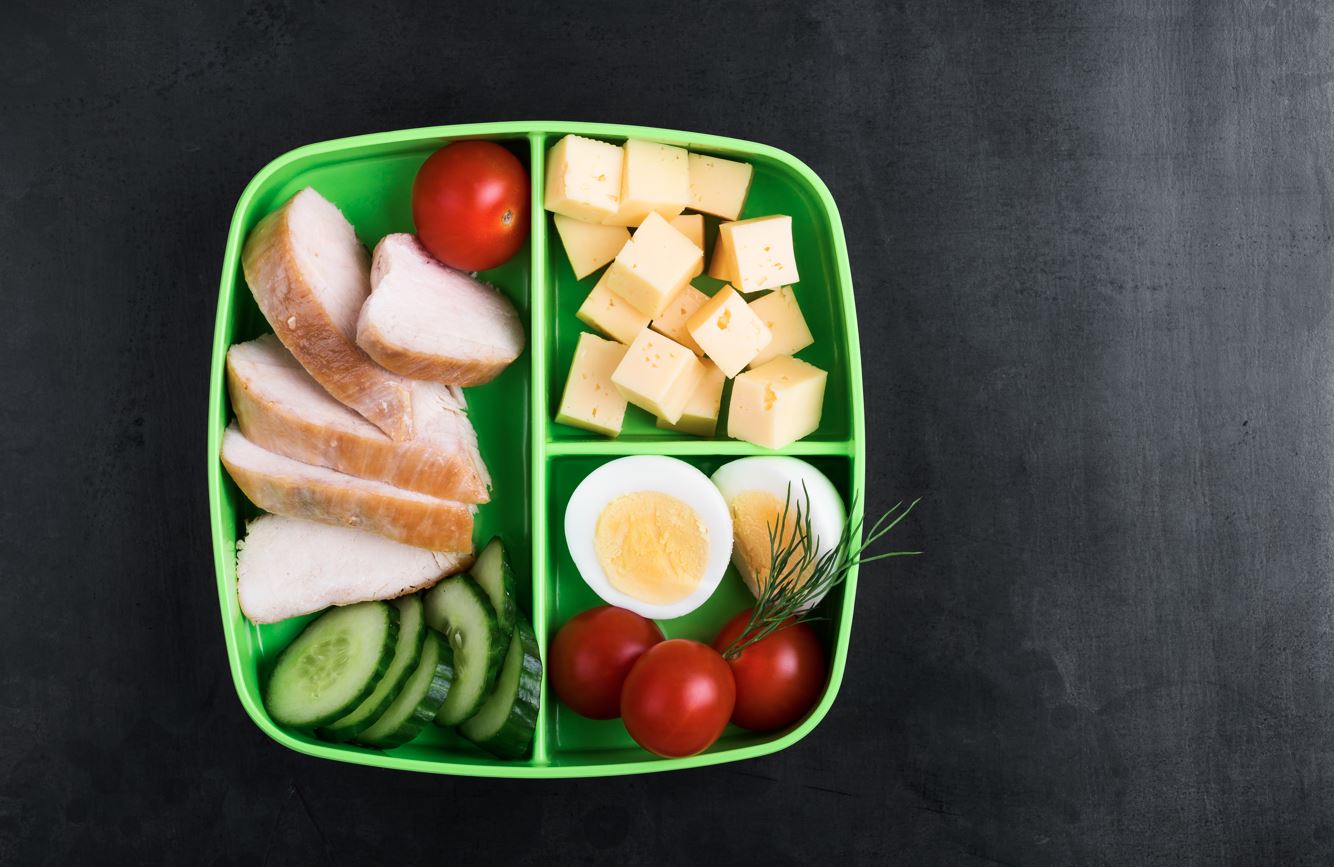Food Portions: Choosing Just Enough for You
How can I keep track of how much I eat?
Checking food labels for calories per serving is one step toward managing your food portions. It’s also important to keep track of
- what you eat
- when you eat
- where you eat
- why you eat
- how much you eat
Create a food tracker on your cellphone, calendar, or computer to record the information. Or you can download apps available for mobile devices to help you track how much you eat—and how much physical activity you get—each day. For example, the Start Simple with MyPlate app tells you how to get started and is free to download and use.
The sample food tracker in Figure 5 below shows what a 1-day page of a food tracker might look like. In the example, the person chose fairly healthy portions for breakfast and lunch to satisfy hunger. The person also ate five cookies in the afternoon out of boredom rather than hunger.
By 8 p.m., the person was very hungry and ate large portions of high-fat, high-calorie food at a social event. An early evening snack of a piece of fruit and 4 ounces of fat-free or low-fat yogurt might have prevented overeating less healthy food later. The number of calories for the day totaled 2,916—more than most people need. Taking in too many calories may lead to weight gain over time.

If you find that you eat even when you’re not hungry, like the person in the food tracker example, try distracting yourself from food by doing something else instead. For instance,
- call or visit a friend
- if at work, take a break and walk around the block, if your work and schedule permit
- try a healthier option, such as a piece of fruit, a handful of nuts, or carrot sticks and hummus
Using your tracker, you may become aware of when and why you consume less healthy foods and drinks. This information may help you make different choices in the future.
Content Details:
Source URL: https://www.niddk.nih.gov/health-information/weight-management/just-enough-food-portions
Source Agency: National Institute of Diabetes and Digestive and Kidney Diseases (NIDDK)



